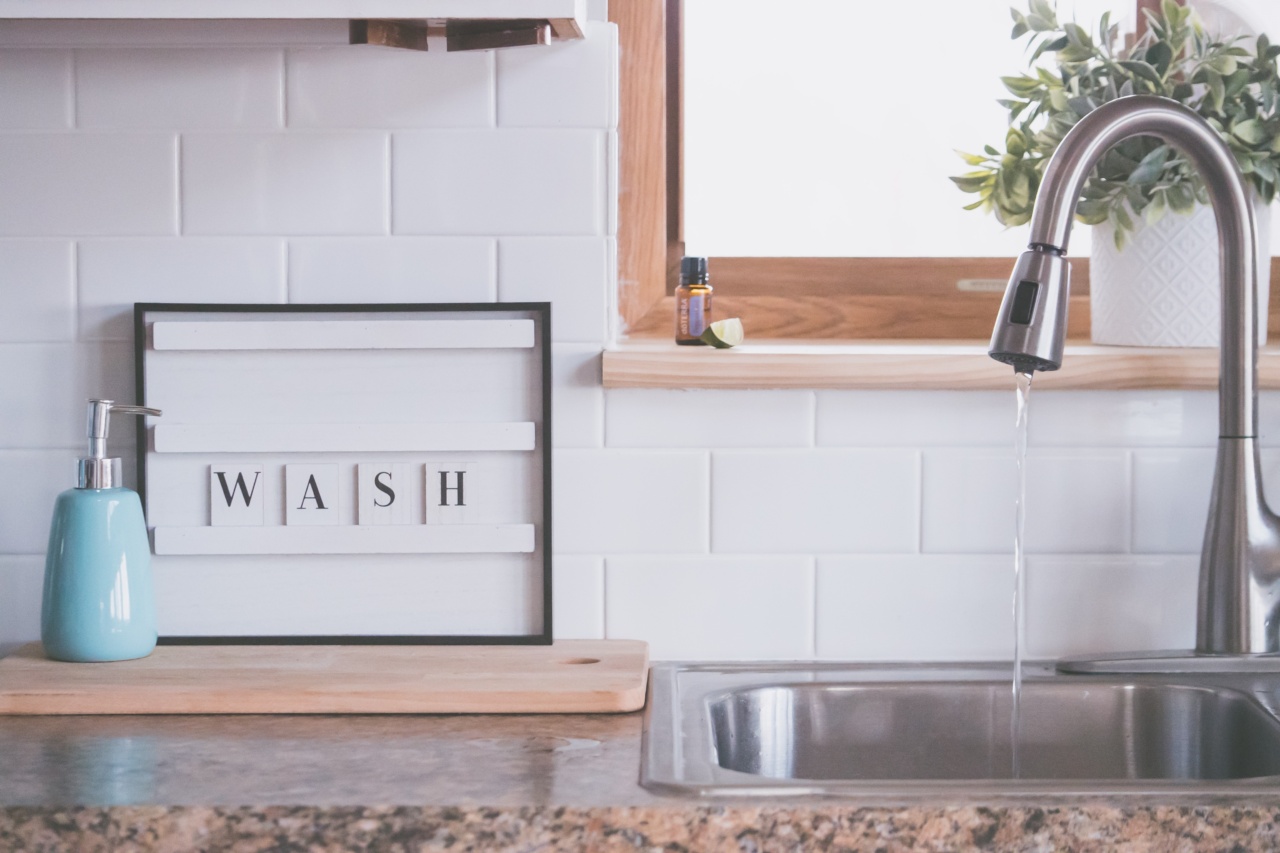Contact lenses have become a popular alternative to glasses for vision correction. Whether you wear contact lenses for cosmetic reasons or for better vision, it is important to prioritize proper hygiene to avoid infections and other complications.
Maintaining good contact lens hygiene is not only essential for preserving the lifespan of your lenses but also crucial for your eye health and overall well-being. In this article, we will explore the importance of contact lens hygiene and provide you with valuable tips on how to keep your lenses clean and your eyes healthy.
1. Understanding the Risks of Poor Contact Lens Hygiene
Failure to practice good contact lens hygiene can lead to a wide range of eye infections and complications. Some of the most common risks associated with poor lens hygiene include:.
– Bacterial or fungal infections: When contact lenses are not cleaned or stored properly, they can become a breeding ground for harmful bacteria or fungi. These microorganisms can cause serious infections such as corneal ulcers.
– Eye irritation and redness: Dirty or contaminated contact lenses can irritate your eyes, leading to redness, itchiness, and discomfort. This can significantly affect your daily activities and quality of life.
– Conjunctivitis (pink eye): Insufficient lens hygiene increases the risk of conjunctivitis, a highly contagious eye infection characterized by redness, itchiness, and discharge.
2. The Basics of Contact Lens Hygiene
To maintain good contact lens hygiene, it is essential to follow these basic guidelines:.
2.1. Wash Your Hands
Before handling your contact lenses, always wash your hands thoroughly with soap and water. This step is crucial to prevent the transfer of dirt, oils, and bacteria from your hands to your lenses.
2.2. Clean and Disinfect Your Lenses
Follow the recommended cleaning and disinfection routine for your specific type of contact lenses. There are various cleaning solutions available, including multipurpose solutions and hydrogen peroxide-based systems.
It is important to carefully follow the instructions provided by your eye care professional.
2.3. Replace Your Lens Case Regularly
Your contact lens case can become a breeding ground for bacteria and fungi if not cleaned and replaced regularly. Replace your lens case every three months or as recommended by your eye care professional.
2.4. Avoid Water Exposure
Never expose your contact lenses to water, be it tap water, shower water, or any other form of water. Water contains microorganisms that can cause serious eye infections. Always remove your lenses before swimming or engaging in water sports.
2.5. Stick to the Recommended Wearing Schedule
Adhere to the recommended wearing schedule provided by your eye care professional. Avoid wearing your lenses for longer periods than prescribed, as this can compromise your eye health and increase the risk of infections.
2.6. Avoid Sleeping with Contact Lenses
Sleeping with contact lenses significantly increases the risk of eye infections, as it restricts oxygen flow to your corneas. Unless prescribed for extended wear, remove your lenses before going to bed.
3. Additional Tips for Contact Lens Hygiene
Here are some additional tips to ensure optimal contact lens hygiene:.
3.1. Avoid Using Expired Products
Always check the expiration date of your contact lens solutions and other related products. Using expired solutions can be ineffective in cleaning and disinfecting your lenses, increasing the risk of eye infections.
3.2. Attend Regular Eye Exams
Regular eye exams are crucial to monitor your eye health and ensure your contact lenses are fitting properly. Your eye care professional will evaluate your eyes for any signs of infections or complications and make appropriate recommendations.
3.3. Follow Proper Storage Guidelines
When you are not wearing your contact lenses, store them in a clean contact lens case filled with fresh contact lens solution. Avoid rinsing your lenses with tap water as it may contain contaminants.
3.4. Avoid Using Homemade Solutions
While it may be tempting to use homemade solutions or saliva to clean your lenses in emergency situations, it is highly recommended to avoid doing so. Homemade solutions can introduce harmful bacteria and increase the risk of infections.
3.5. Avoid Sharing Contact Lenses
Contact lenses are personalized medical devices and should never be shared with anyone, regardless of whether they have a prescription or not. Sharing lenses can increase the risk of serious eye infections and complications.
4. Signs of Contact Lens-Related Infections
Understanding the signs and symptoms of contact lens-related infections is crucial for timely intervention and appropriate treatment.
If you experience any of the following symptoms, remove your lenses immediately and consult your eye care professional:.
4.1. Redness and Irritation
Redness, itchiness, and irritation in the eyes are common signs of an eye infection. If these symptoms persist even after removing your lenses, seek immediate medical attention.
4.2. Blurry Vision
If your vision becomes blurry or hazy while wearing contact lenses, it may be an indication of an infection. Discontinue lens wear and seek prompt medical advice.
4.3. Excessive Tearing or Discharge
Excessive tearing or abnormal discharge from your eyes can be a sign of an infection. If you notice any unusual eye secretions, do not ignore them and consult your eye care professional.
4.4. Sensitivity to Light
Increased sensitivity to light, also known as photophobia, can be an indicator of an eye infection. If you experience discomfort or pain when exposed to light, it is essential to seek medical attention.
4.5. Eye Pain
Severe eye pain is a serious symptom that should never be ignored. If you experience persistent eye pain, remove your lenses immediately and seek immediate medical care.
5. Conclusion
Proper contact lens hygiene is of utmost importance for maintaining excellent eye health and avoiding infections.
By following the recommended guidelines and practicing good hygiene habits, you can enjoy clear vision and a comfortable lens-wearing experience. Remember to consult your eye care professional for personalized advice and to address any concerns or questions you may have regarding your contact lens hygiene routine.



























